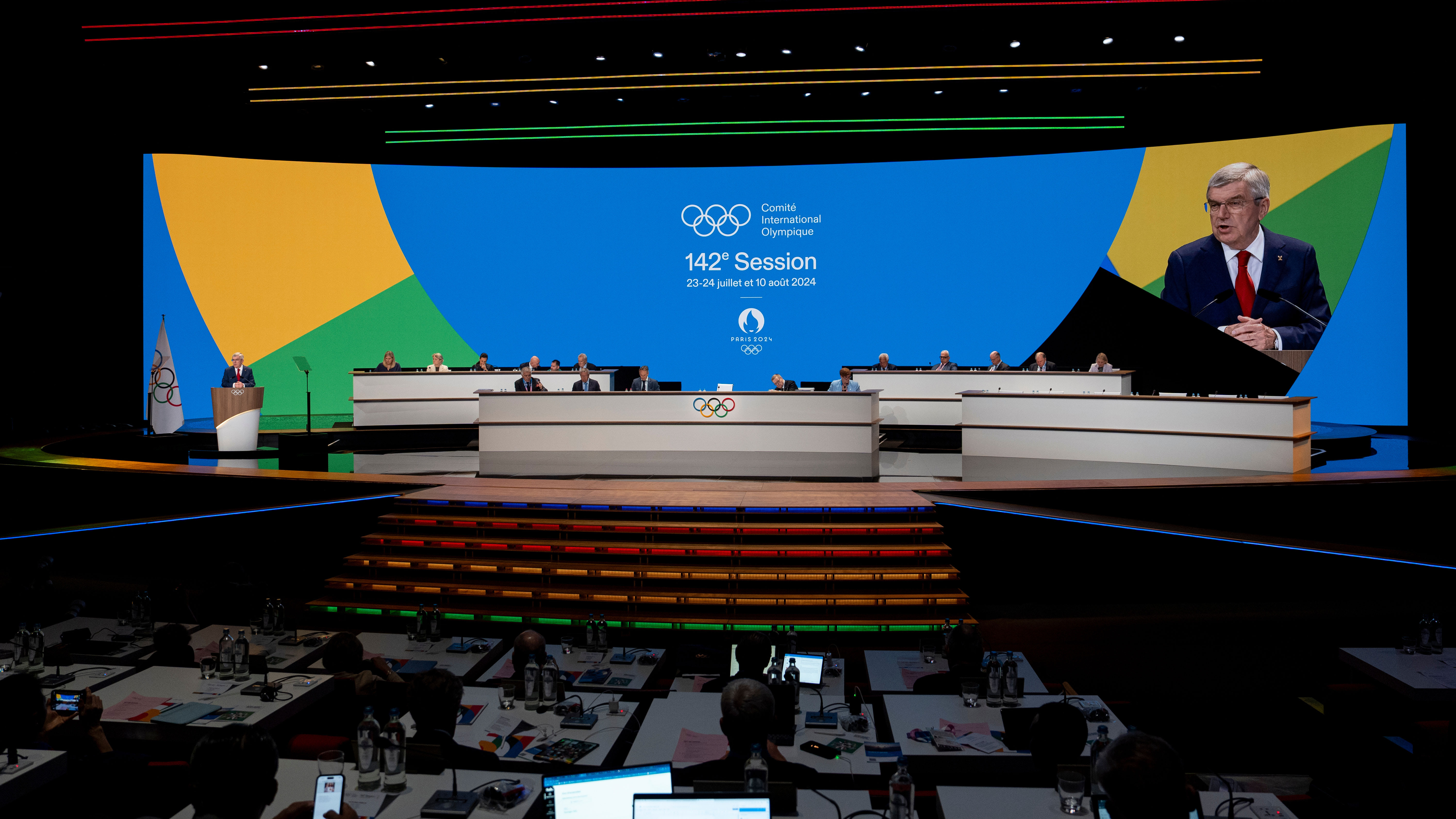
IOC Sessions
Key points
The IOC Session is the general meeting of the members of the International Olympic Committee (IOC). It is the supreme organ of the IOC. The IOC Session adopts, modifies and interprets the Olympic Charter and its decisions are final. While the IOC Session may delegate powers to the IOC Executive Board (EB), all important decisions are taken by the IOC Session, which votes on proposals put forward by the EB. If the IOC EB can be considered the "government" of the IOC, the IOC Session is the "parliament".
The IOC Session is held at least once a year, often over a two- or three-day period. In the years when Olympic Games take place, the IOC Session traditionally precedes them. An extraordinary IOC Session can be convened upon the initiative of the IOC President, or on the written request of at least one third of the IOC Members.
The main prerogatives of the IOC Session are the following:
- It elects the host of the Olympic Games;
- It elects the IOC President, Vice-Presidents, the other members of the IOC EB and - on the latter's proposal - IOC Members;
- It decides or amends the Olympic Charter;
- It decides on the inclusion or exclusion of a sport on the programme of the Olympic Games;
- It decides on the recognition (or exclusion) of International Sports Federations (IFs), National Olympic Committees (NOCs) or any other sports organisation which submits a request;
- It decides on the cities which will host forthcoming IOC Sessions (the IOC President decides on the location of Extraordinary IOC Sessions);
- It approves the reports and accounts of the IOC.
The following main procedures are applicable for the decisions taken by the IOC Session:
- The IOC President, or, in his absence, the longestserving IOC Vice-President present chairs the IOC Session;
- The quorum required for an IOC Session is half the total membership of the IOC with voting rights;
- Each member has a vote, and voting by proxy is not allowed. Abstentions and spoiled or blank votes are not counted;
- In general, an IOC Member must abstain from participating in a vote when it concerns a city (Olympic Games, IOC Session, Olympic Congress), a person (IOC Member) or any other matter from his or her country/ NOC;
- The decisions are taken by the majority of votes cast. However, a majority of two-thirds of the members present at the IOC Session is required for any modification to the Fundamental Principles and Rules of the Olympic Charter;
- The election of a host must take place in a country not having a candidate for the Olympic Games in question;
- A host is declared elected when it obtains the majority of the votes cast. If there is no majority, the host with the fewest votes is eliminated, and IOC Members proceed to another round of voting. The procedure is repeated until an absolute majority is obtained;
- The IOC President, the IOC Vice-Presidents and the IOC EB Members are elected by the IOC Session, in a secret ballot, by the majority of the votes cast. If there is no majority, the candidate with the fewest votes is eliminated, and the IOC Members proceed to another round of voting. Abstentions are not taken into account, nor are spoiled or blank votes. The procedure is repeated until an absolute majority is obtained.
Upcoming IOC Sessions
The 143rd IOC Session will be held on January 30 2025 in Lausanne, Switzerland.
The 144th IOC Session will be held from 18 March to 21 March 2025 in Greece.